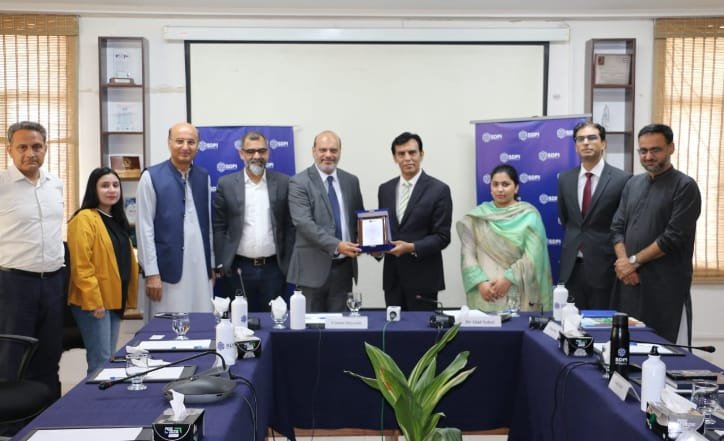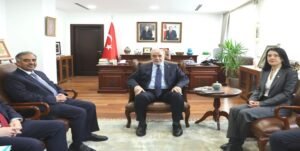
ISLAMABAD : One year after the successful completion of the national initiative, “Reducing Industrial Trans Fatty Acids (iTFA) in Pakistan,” Sustainable Development Policy Institute (SDPI), in collaboration with Cargill, Pakistan reflects on the program’s far-reaching impact on public health, institutional capacity, and food system reforms in the country.
Industrially Produced Trans-Fatty Acids (iTFAs), most often formed through the partial hydrogenation of vegetable oils (PHOs), have been present in margarine, bakery items and other products and are associated with increased risks of heart disease, stroke, and other chronic illnesses. In response to these risks, the World Health Organization (WHO) has set a global target to eliminate iTFAs from the food supply by 2023. As a result, countries around the world introduced legislation to align with the WHO’s iTFA best practices. As of last year, 53 countries have adopted best-practice policies which cover 46% of the global population (or 3.7 billion people).
In this global context, SDPI and Cargill jointly launched the iTFA reduction project in 2023 to support Pakistan’s alignment with WHO’s guidelines. The program focused on raising awareness, building technical capacity within government bodies, and engaging food sector stakeholders to reduce iTFA use, particularly in widely consumed products. The primary objective was not only to improve public health but also to alleviate pressure on the country’s healthcare system by reducing non-communicable disease burdens.
Throughout its course, the project effectively engaged with key regulatory bodies, including Punjab Food Authority (PFA), Islamabad Food Authority (IFA), and the Gilgit-Baltistan Food Department, through structured meetings, consultative sessions, and capacity-building workshops. These engagements focused on the enforcement of iTFA regulations, aligning food safety protocols, and sharing the best national and international practices. Technical meetings with food departments across regions enabled the identification of common gaps and guided harmonizing regulatory efforts.
One of the critical achievements of the program was the development and dissemination of a detailed database of iTFA-free alternatives for manufacturers and food processors. This document was designed in collaboration with industry experts and later shared with food business operators (FBOs) across multiple provinces. The guide not only recommends safer substitutes for partially hydrogenated oils but also outlined supplier information, reformulation guidance, and compatibility considerations.
In addition, the program also launched multi-platform awareness campaigns to educate the public on the dangers of trans fats and encourage informed consumption. These campaigns were supported by community outreach, educational seminars for small and medium enterprises (SMEs), and university-level engagements with food science departments.
Reflecting on the journey, Dr Vaqar Ahmed, Joint Executive Director at SDPI, noted:
“The real success of this program lies in its ability to bring together government regulators, industry leaders, and civil society under one banner. Through collaborative platforms and technical innovation, we’ve laid the groundwork for systemic change in how fats are produced, consumed, and regulated in Pakistan.”
A Cargill spokesperson said: “As a global food and agriculture company committed to nourishing the world safely, responsibly, and sustainably, Cargill is proud to partner with SDPI on this meaningful initiative to help bring healthier foods to Pakistani consumers. This is part of the industry-leading commitment we made to ensure that our entire worldwide edible oils portfolio meets WHO’s best practice standard on iTFA, including in the countries where there is no legislative mandate. We look forward to SDPI and industry partners building on the positive project outcomes to further advance food development and public health goals in the country.”She







